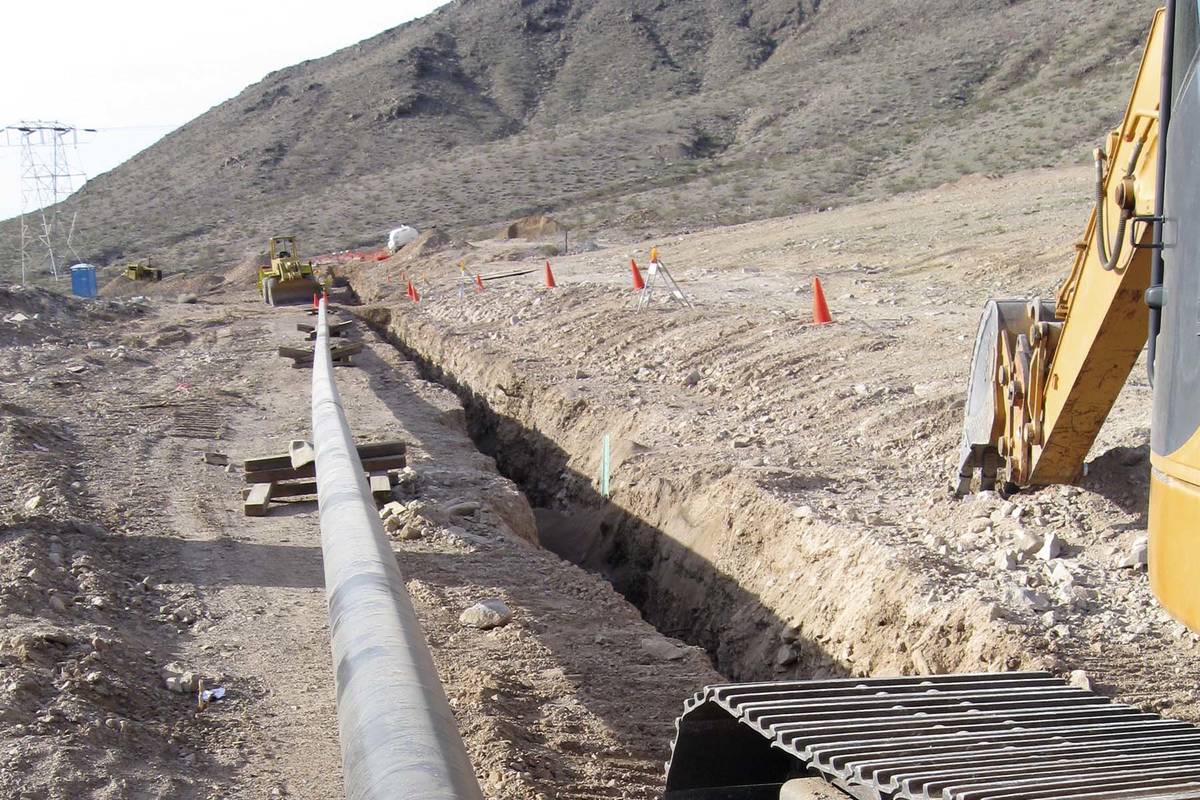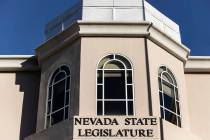COMMENTARY: Natural gas is going the way of the dinosaurs
Nevada is moving away from gas. We can see that commitment in the state climate strategy, the renewable portfolio standard and in Gov. Steve Sisolak’s goals of 100 percent clean power and zero greenhouse gas emissions by 2050. So the question now facing Nevada legislators is: If we’ve already decided to move away from gas, how can we make sure the energy transition keeps costs low for low-income and middle-class families and seniors on fixed incomes?
As a clean energy advocate, I agree with the Review-Journal’s recent editorial arguing that we can’t require Nevadans to get rid of their gas stoves and other appliances today. But what about when your gas stove or water heater breaks? There are electric options that are much more efficient than the old gas technology. When you call your contractor or head to the appliance store, we want these options to actually be available. We want NV Energy to offer rebates for these clean, efficient options.
We’re talking about expanding choice, not taking anything away. Even if gas is all you’ve ever known, maybe you switched from a landline to a cellphone or from a stick shift to an automatic transmission car. These changes happened at your own pace. During a moment of transition such as a big purchase or move to a new home, you decided to try something new. The shift from gas to electricity will be similar, and it’s time we look at how to navigate it in a way that keeps energy bills affordable and air clean.
Every year, our gas and electric utilities consider new projects to bring energy to our homes and businesses. For example, Southwest Gas is proposing to spend $3.7 billion ripping up 7,000 miles of Las Vegas streets for a pipe replacement project that will increase gas bills by an average of 20 percent over the construction period.
That’s a lot of money coming out of our pockets, so it’s worth asking: What are we getting in return? Do we really need to replace all of those pipes, or could we just replace them as needed? Are there newer technologies that — like cellphones and automatic cars — will better serve our needs for the years to come so we won’t even need those pipes? What’s the impact on our bills?
It’s time to ask gas utilities these questions before they make big investments and increase our rates to cover their costs. This isn’t a new idea. Already, officials with electric utilities such as NV Energy follow a similar planning process. Before they build a transmission line or buy electricity from a new large-scale solar farm, they must show that it’s a good use of money. After 38 years of this planning, they’re still in business — after all, this is a process that identifies and reduces risk, leading to more thoughtful uses of customer money. Why shouldn’t gas utilities do the same?
If our utilities can’t prove that they’re making good investments, how can we trust them to provide affordable energy? One obvious answer is that we’ve seen low gas bills in recent years. But the world is changing: Thanks to advancements in solar and geothermal power here in Nevada, we now have local, clean alternatives that are affordable and reliable.
As more and more Nevadans make the switch to efficient, electric appliances powered by Nevada renewable energy, gas bills will go up because fewer customers will cover the costs of maintaining the entire gas system. Without action, I worry that low-income Nevadans may be the last ones using the gas system, stuck with aging appliances and ever-rising gas bills they can’t afford. This is exactly why we need a planning process.
If our utilities can better predict gas demand in the years to come and build new infrastructure only when it is cost-effective and important for safety purposes, we can limit these rate increases. We’ve also got to create rebate programs for low- and moderate-income Nevadans who do want to upgrade to efficient electric appliances. The switch to clean energy is happening over the next few decades whether or not we improve energy planning and appliance rebates — but these policies will lead to a more affordable transition.
Preventing wasteful and unnecessary gas infrastructure spending means lower bills, and better appliances for low-income Nevadans and seniors will improve public health. For our health and for a more affordable Nevada, we can’t keep hiding from our questions about the future of gas.
It’s time to face our problems head-on and ensure that this energy transition prioritizes the health and well-being of all Nevadans — and offers them better options when they decide it’s time for a change.
— Verna Mandez is deputy director of the Nevada Conservation League.





























